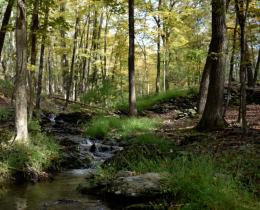We need a new water ethic. We need to place water at the center of everything we do: The way we produce food, the way we produce energy, the way way we produce goods, and the way we trade them. I call for this ethic in my book Our Blue Future: Protecting Water For People and the Planet Forever. There are four principles that can guide us in doing this.
- Water Is a Human Right. We live in a world where those with resources and power can have all the water they want, creating more and more inequity. This is not just happening in the global south anymore. You get people in Detroit, in Baltimore, being cut off from water because they can’t pay. This is happening in inner cities in Europe, because of the austerity plans. This is now becoming a global issue. We have to find ways of not only taking care of water but also sharing what we have in a more just fashion.
- Water Is a Public Trust. This means it can’t be owned; it can’t be bought and sold. It belongs to the people, the ecosystem, and the future. Governments only take care of water on our behalf. Water cannot be put on the open market, traded and bought and sold. It must be maintained in the public realm as a commonly shared resource.
- Water Has Rights. Nature, and water specifically, has rights beyond its use to us. We have to protect the integrity of watersheds not just for humans but for all the species dependent on it. You can certainly use water, but if you use so much water that you destroy the watershed then that’s a crime against water and a crime against nature.
- Water Can Teach Us to Live Together. In a world running out of water and other resources, we’re going to potentially come into conflict with one another. Is it possible that instead of more violence and conflict, we could see water as a source to bring peace? How could we negotiate on a watershed or on a river? How would you build watershed protection treaties and water boundary sharing treaties based on the good of the whole not just what each country can get from it. It’s a totally different way of coming at agreement. In doing this we can learn to live together in a new, more harmonious and sustainable manner.



